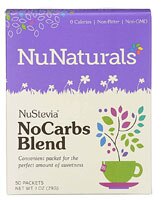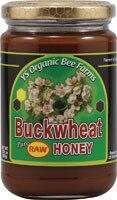The Dr. Oz Show
Airdate: October 8, 2012
Dr. Oz: Should You Give Up Artificial
Sweeteners?
- An Oz alert regarding artificial sweeteners
- How to reduce your use of artificial sweeteners
- Artificial butter substitutes are linked to Alzheimer's disease
- Swap the artificial fat for real fat
Are artificial substitutes helping or
hindering health? Butter and sugar alternatives have been linked to
increased risks for some of our greatest health concerns. Find out
what the latest studies has to say about the impacts of artificial
ingredients on the body. Dr. Oz shows how to steer clear and reduce
your use of artificial ingredients.
Photo credit:
FreeDigitalPhotos.net
~~~~~~~~~~~~~~~~~~~~~~~~~~~~~~~~~~~~
Join the Conversation!
Connect with Watching Dr Oz:
~~~~~~~~~~~~~~~~~~~~~~~~~~~~~~~~~~~~
Dr. Oz:
Should You Give Up Artificial Sweeteners?
On the food and sweetener market today
are four groups of artificial sweeteners that have been approved by
the FDA: aspertame, sucralose, saccharin, acesulfame potassium.
Artificial sweeteners are found in over 6,000 products sold in the
United States with over 15% of the population using them regularly.
That's billions of dollars spent on artificial sweeteners in an
attempt to be more healthy but in reality may be causing health
concerns.
Dr. Oz: Do Artificial Sweeteners
Cause Weight Gain?
Yes, said Dr. Oz, artificial sweeteners
can increase weight gain but there's an even bigger concern.
Metabolic syndrome is on the rise in the United States with people
experiencing three health concerns simultaneously: high blood
pressure, excess belly fat, and insulin resistance. Dr. Oz said
metabolic syndrome can be triggered by ingesting artificial
sweeteners.
Renatta started adding artificial
sweeteners to her coffee to reduce her calorie intake. There's a cup
of coffee next to her all day, every day. Yet she can't lose weight.
Another viewer shared that she started drinking diet soda in high
school to fulfill her sweet cravings without turning to white sugar.
Neither woman realized there could be a
health risk involved with their use of artificial sweeteners.
In an animation, Dr. Oz explained that
there are taste buds not only in our mouths but also along our
esophagus. These taste buds send messages to the brain that a sweet
tasting food or drink has entered the body. The problem is that the
brain knows that the sweet taste from artificial sweeteners isn't the
right type of sweetness to satisfy sweet cravings. As a result, the
pancreas creates more insulin and the body can become insulin
resistant, fat can accumulate in the mid section, and the brain sends
out message to get more sweets.
One soda containing artificial
sweeteners can cause metabolic syndrome.
Dr.
Oz: Can Artificial Sweeteners Cause Cancer?
Artificial sweeteners on their own do
not cause cancer, said Dr. Oz however gaining weight by turning to
artificial sweeteners can lead to increased cancer risks.
Excess belly fat can lead to an increased risk of several
cancers including colon, pancreas, endometrial, and breast cancers.
Dr. Oz: Can Artificial Sweeteners
Making You Sick?
Millions of dollars are spent each year
trying to resolve digestive issues including irritable bowel. Could
these digestive issues be connected to the use of artificial
sweeteners?
One viewer shared her story of
experiencing diarrhea when eating sugar. She reached for artificial
sweeteners thinking they would be easier on her digestive track.
However after eating artificial sweeteners she experienced stronger
diarrhea, stomach cramping, and increased body temperature.
Dr. Oz said there are recent studies
showing that sugar alcohols, neither a sugar nor an alcohol but
chemicals, can be the cause of a great deal of common digestive
discomforts. Diarrhea is an extremely common reaction that has been
linked to these sugar alcohols.
Dr. Oz explained that when sugar
alcohols are ingested they can an increase in bacteria in the
intestinal track and draws water in the intestines. The combination
of bacteria and water in the intestines creates the equivalent of a
laxative. All it takes is 10g of a sugar alcohol to cause a person to
run to the bathroom.
Five sticks of sugar-free gum contains
about 10g of sugar alcohols so does ½ of a sugar-free cookie and
five sugar-free mints.
How can you tell if a product contains
a sugar alcohol ingredient? Dr. Oz explained that any ingredient on a
food label that ends in “itol” (such as sorbitol, xylitol,
mannitol, maltitol, erythritol) is a sugar alcohol. The higher up on
the ingredient list the “itol” ingredient is listed than the more
of it in the product.
Dr. Oz: Can Artificial Sweeteners
Cause Bladder Issues?
Renee wrote in to The Dr. Oz Show with
a complaint and a plea for help for having to go to the urinate too
often, actually all throughout the day. She noticed the problem when
she switched from sugar in her coffee to an artificial sweetener and
when she switched from regular soda to sugar-free soda. To add to the
list, she chews sugar-free gum all day as well.
Bladder issues are a concern that is
being linked to artificial sweeteners. In a normal bladder, when the
bladder fills up with liquid, muscles contract allowing the body to
urinate. When a person ingests artificial sweeteners, the muscles of
the bladder begin to spasm and cause frequent urination without much
urine present in the bladder.
Dr. Oz explained that one packet of
artificial sweeteners can cause these spasms of the bladder muscles.
For an average person, Dr. Oz explained, going to the bathroom eight
times a day is normal. More than eight trips to the bathroom to
urinate is a cause for concern.
Dr. Oz: Best Ways to Cut Back on
Artificial Sweeteners
Ashley
Koff, RD, author of Mom
Energy: A Simple Plan to Live Fully Charged,
joined Dr. Oz to discuss how to cut back on artificial sweeteners.
Ms. Koff recommends using what she calls The Three R's to reduce your
use of artificial sweeteners.
Dr. Oz Cut Back on Artificial
Sweeteners: Reduce
Ms. Koff says to get yourself down to
one serving of artificial sweetener a day. If you drink five cups of
coffee in a day, she explained, only use one artificial sweetener in
your coffee then use another natural sweetener for the other cups.
Dr. Oz Cut Back on Artificial
Sweeteners: Replace
Switch from calorie-free sweeteners to
natural sweeteners which can be low- to no-calories. Ms. Koff
recommends stevia which is up to 50 times sweeter than sugar [some
stevia products can be up to 300 hundreds times sweeter than sugar].
Stevia has become very popular so there
are many products on the market some of which include both stevia as
well as sugar alcohols or other artificial sweeteners. Read the label
and make sure stevia is on the ingredient list and there are no
artificial sweeteners.
Make it easy and carry your own packets
with you. Ms. Koff says you still need to pay attention to serving
sizes with stevia and limit your use to three or four packets a day.
She explained that more stevia than that in a day is still giving the
body sweetness overload. Liquid stevia is great to add to drinks. Stevia can be used in baking but adjustments need to made to a recipe if substituting another sweetener with stevia. Check online for baking swap directions.






Dr. Oz Cut Back on Artificial
Sweeteners: Renew
Renew by restoring your taste buds.
Overloading with sweeteners can cause the body to not recognize the
natural taste of sweetness such as an apple or honey. Ms. Koff
recommends using raw buckwheat honey as a natural sweetener which is
dark in color and rich in unrefined sweeteners. A more natural form
of sweeteners such as honey will provide not only a sweet taste but
will also give the body a better form of energy versus the stimulants
people get from diet soda.



[Click here to read posts from Ms.
Koff's previous appearances on The Dr. Oz Show:
Dr. Oz: Can Butter Substitutes
Cause Alzheimer's Disease?
Can artificial butter flavorings
trigger Alzheimer's disease? Diacetyl is a chemical that is used in
foods in place of butter in cooking sprays, cheese, crackers, baking
mixes, microwave popcorn, and even, get this, your wine.
Diacetyl is seen by many as a
revolutionary ingredient that can give food that rich buttery flavor
without the fat and calories that comes with butter and other fats.
Over the summer, explained Dr. Oz,
studies came out linking artificial butter flavors to Alzheimer's.
Eating these chemicals causes a
sap-like material to accumulate in the brain along the neurons. That
clumping in the brain that can lead to memory loss and possibly
Alzheimer's disease. Dr. Oz explained that the studies over the
summer were inspired by high reports of workers in factories that
produce these artificial butter substitutes were developing higher
incidents of Alzheimer's disease.
This study is concerning indeed but Dr.
Oz explained that it could be decades before a true connection is
proven. In the meantime, Dr. Oz asked why be a guinea pig?
Dr. Oz: How to Reduce Artificial
Butter Flavorings
Look on the label for either “diacetyl”
or “artificial ingredient”. Plant sterols are a good option, a
natural option that is healthier than an artificial ingredient.
As with artificial sweeteners, using
artificial butter flavorings over time the body can forget the taste
and satisfaction of real butter. Dr. Oz recommended using whipped
butter instead. The whipped variety of butter has greater volume
which allows you use a smaller amount while still getting the natural
taste of real butter.
Dr. Oz Funniest Lines from Kids
Dr. Oz's daughter Zoe used to hid her
vitamins under her mattress. He loves to hear funny lines from kids
and has received many examples from viewers:
- I'm allergic to broccoli;
- If I stop playing video games I'll go blind;
- My parents said not to clean my room because they like it messy;
- Dr. Oz says chocolate is good for you;
- Can I have dessert before dinner because it helps me dance?
~~~~~~~~~~~~~~~~~~~~~~~~~~~~~~~~~~~~
Place your vote for
this week's quiz
and return on Saturday
for the answer.
Thank you for making
Watching Dr Oz a success!
~~~~~~~~~~~~~~~~~~~~~~~~~~~~~~~~~~~~


You know what's good for giving you that rich, buttery flavor? BUTTER.
ReplyDeleteI'm thiiiis close to actually giving up my Coke Zero habit, and this episode recap helps me in my quest. I'm a little resentful about that, frankly.